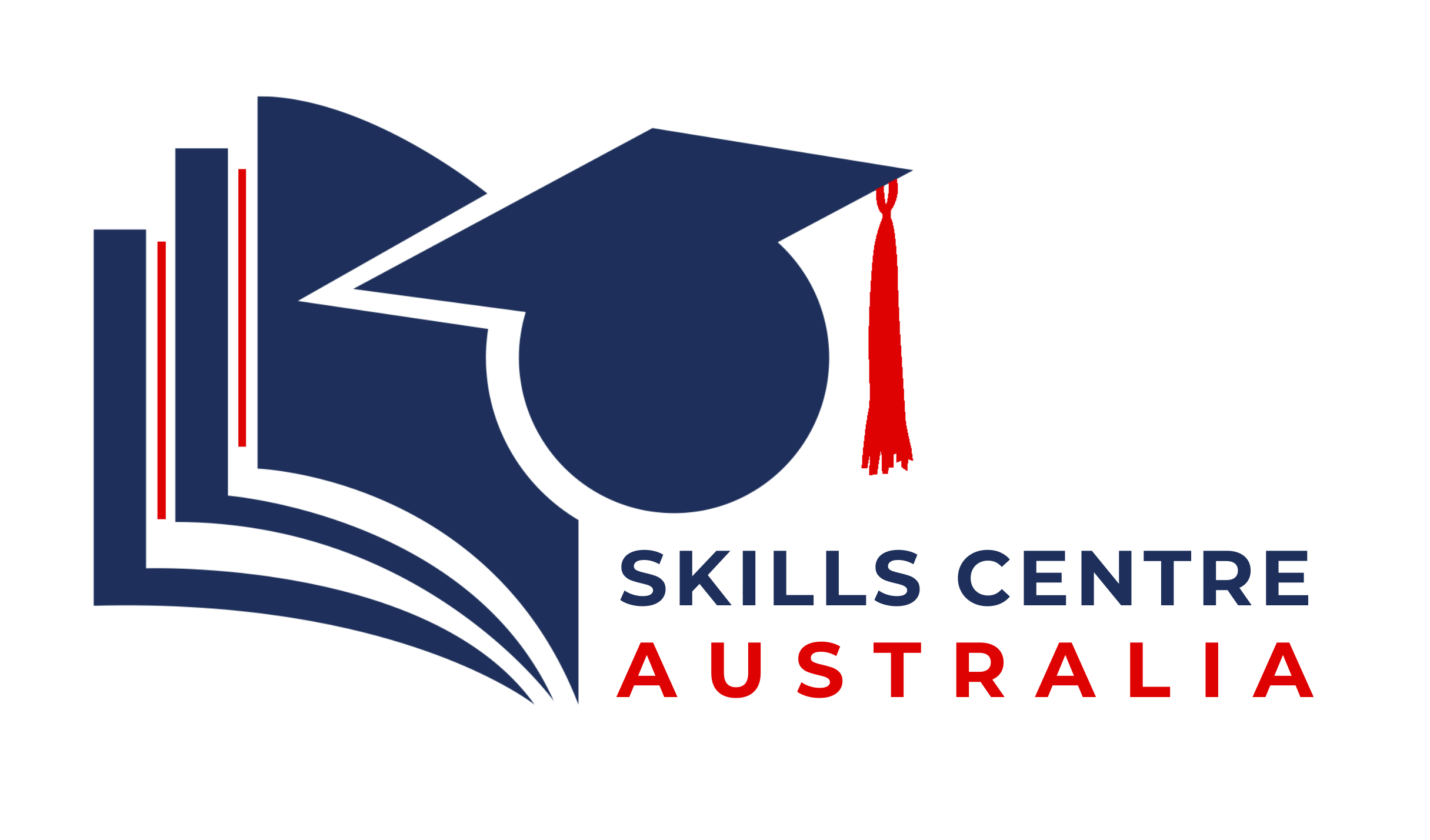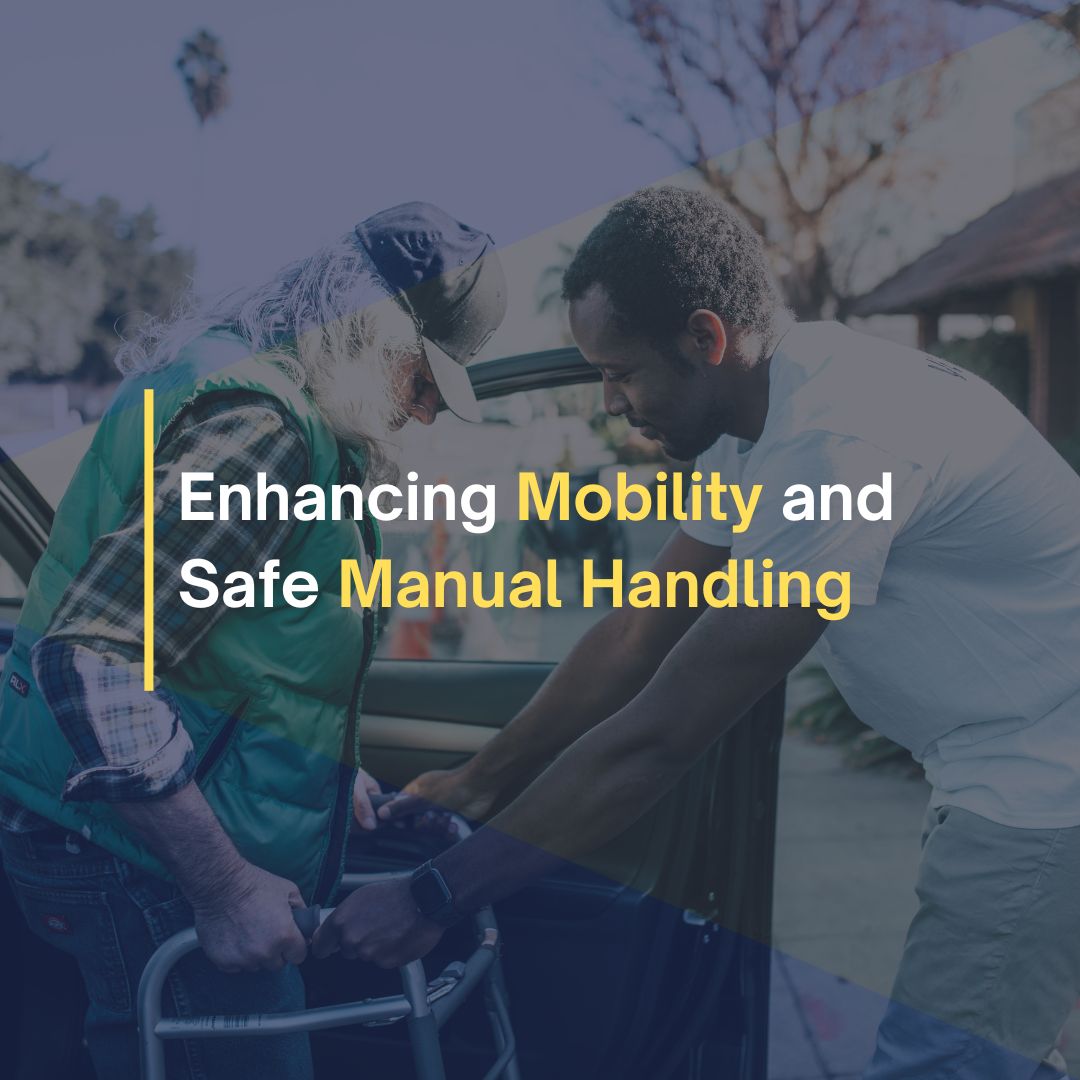Every year, on 3 December, we observe the International Day of People with Disabilities (IDPwD) – a day dedicated to raising awareness about the challenges faced by people living with all forms of disabilities by promoting inclusion, accessibility, and equality.
This year, KC Skills Centre wants to focus on mobility, which is essential for the physical and emotional wellbeing of many. Mobility challenges affect millions worldwide, particularly in care settings, where support workers are tasked with assisting individuals in daily activities.
In honour of IDPwD, we reflect on how we can improve mobility for clients and how care workers can safely assist through proper manual handling practices. This not only ensures the wellbeing of individuals, but also protects the health and safety of support workers.

The importance of mobility for people with disabilities
Mobility is about more than just physical movement. It is integral to independence, autonomy, and dignity. Whether someone uses a wheelchair, crutches, or a walking aid, their ability to move freely enhances their quality of life. Mobility also plays a significant role in enabling participation in social, educational, and professional activities.
For many with physical impairments, daily assistance with mobility is necessary. In care settings, support workers often help with transferring individuals from beds to wheelchairs, assisting with walking, or providing support for standing and sitting. However, these tasks, while critical, can carry significant risks—both for the person being assisted and for the worker providing that assistance.
The role of manual handling in supporting mobility
Manual handling refers to any activity that involves lifting, moving, or supporting people or objects. In the context of disability care, this could include tasks like:
- Lifting a person from a bed to a chair,
- Transferring someone between wheelchairs or into a car, and
- Assisting a person with walking or adjusting their position in bed.
For support workers, the act of manual handling is an integral part of their job, but it also presents risks of injury, particularly in the back, shoulders, and joints. Incorrect lifting techniques, failure to use appropriate equipment, and inadequate training, can lead to physical harm for both care recipients and caregivers.

Best practices for safe manual handling
To reduce the risk of injury and ensure both care workers and individuals with disabilities are safe, it is essential to follow proper manual handling techniques. Here are some guidelines for safe handling:
Use assistive devices and equipment
When working with people who have mobility challenges, always use appropriate assistive devices such as hoists, transfer boards, slide sheets, or mobility aids (e.g., walkers, wheelchairs). These devices are designed to help support the individual’s mobility while reducing the physical strain on the care worker. Ensure that all equipment is properly maintained and regularly inspected for safety.
Assess the situation
Before performing any manual handling task, assess the environment and the needs of the individual and consider:
- The person’s mobility level (can they assist with the transfer, or is full support needed?),
- The layout of the space (clear any obstacles that could create a trip hazard), and
- The weight and size of the person (if necessary, use more than one caregiver for support).
Use correct lifting techniques
Care workers should always follow proper lifting techniques, which include:
- Keeping a straight back: Bending from the waist puts unnecessary strain on the lower back.
- Bend your knees, not your back: Thie engages the stronger leg muscles and prevents back strain.
- Avoid twisting: When lifting or transferring someone, avoid twist your torso, as this can cause back injuries.
- Use your body weight: When transferring an individual, use your body weight to assist with the lift, rather than relying solely on arm strength.
Communicate with the individual
Effective communication is key when providing mobility assistance. Let the person know what you are doing and why you are doing it. Encourage them to participate in the process where possible too. For instance, the client may be able to shift their weight to assist with the transfer, or they may be able to help adjust their own position in the wheelchair. This not only promotes independence, but also helps to ensure the transfer is smoother and safer for both parties.
Training and education
Regular manual handling training is vital for support workers. This training should include safe lifting techniques, the proper use of assistive devices, and how to assess and respond to the unique needs of each person. By keeping up to date with best practices, care workers can reduce the risk of injury to themselves and those they assist.
KC Skills Centre offers a comprehensive, accredited ABC First Aid training (RTO 3399) for Conducting Manual Tasks Safely (Care Environments). See our website for bookings for more details.

The value of proper training and support
It is essential to recognise supporting people with disabilities is not just about physical assistance, but also about respect, dignity, and proper training. When care workers are well-equipped in safe manual handling techniques, they can provide more effective and compassionate support, ensuring people living with disabilities maintain their independence and dignity.
Moreover, ensuring the health and safety of support workers is just as important as the care they provide. Preventing injury through proper manual handling not only leads to fewer workplace accidents, but also contributes to job satisfaction, lower absenteeism, and better overall care.

Mobility and manual handling are interconnected aspects of disability care that are vital for promoting independence, dignity, and safety for both individuals involved in the process. This International Day of People with Disabilities, we recognise the importance of proper care and mobility support. By following safe manual handling practices and using the right assistive devices, we can help ensure people living with disabilities enjoy a higher quality of life and that care workers remain healthy and empowered in their important roles.
If you are interested in our accredited ABC First Aid training (RTO 3399) for Conducting Manual Tasks Safely (Care Environments) see the course page on our website for more details, contact us on (08) 8340 6875, or fill out an online enquiry form.


